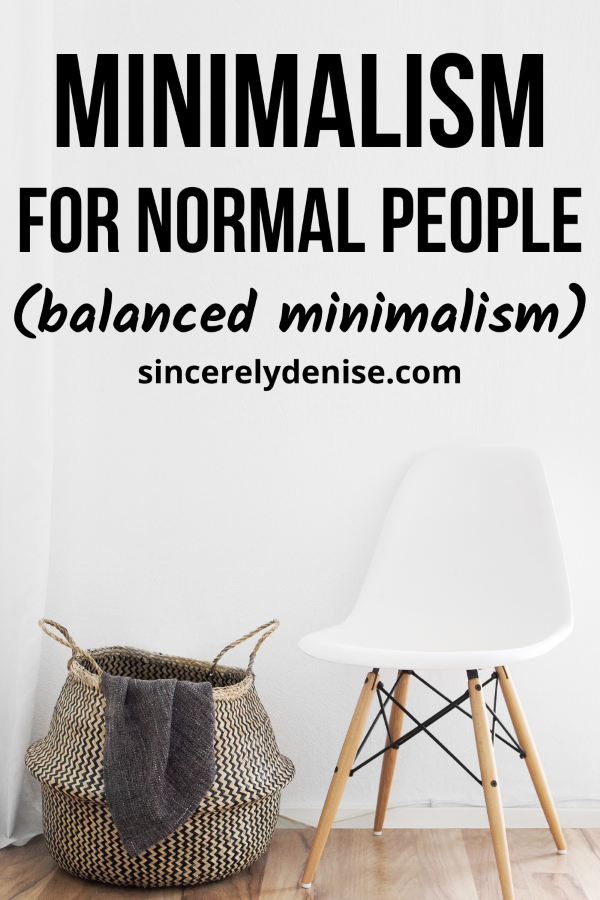If you want to get on top of your finances, save for your future, pay off debt, and stop living pay check to pay check, here are some minimalist money habits to practice. These minimalist money habits help you have a healthier relationship to money and start being more intentional about your spending and saving.

How I Became a Financial Minimalist
I’m going to be honest, I wasn’t always very good at managing my money. I have had my fair share of silly purchases that I made in my early 20s. I had student loan and credit card debt all while having no emergency savings or discipline to save. Anything I would make from my college jobs I would spend on silly things such as clothing, food, and going out with friends.
It wasn’t until I got married that I became more aware of the importance of saving. I’m the type of person who likes to dive straight into something once I set my mind to it, so getting our finances together was no different. My husband and I quickly realized how expensive living in California is and we decided that we didn’t want to rent an apartment.
Our long term goal is to buy and own our home, so we decided to live the cheapest way we possibly could (without having to live with our parents). We purchased an older 5th wheel trailer and we slightly renovated it and turned it into our own tiny home. We only pay rent for the space we park it in, which is way cheaper that living in an apartment. I will probably do a tiny home tour later in the future and talk more about what it’s like living in an RV full time!
It is because we live in such a small space that I adopted a minimalist lifestyle, which pretty much influences every area of my life, including finances.
I am happy to say that I no longer have any debt! Here some minimalist money habits to practice to take control of your finances.
1. Don’t Shop Sales
Honestly, unless you actually need a certain thing, shopping sales is not a very good idea. Many people feel like they need to buy things just because they are on sale.
A lot of companies will mark their items up and then reduce them during sales. This makes you feel like you’re getting a good deal, but you really aren’t.
Instead, be intentional about what you buy. Only buy things when you actually need them. If it happens to be on sale, then great!
2. Save for the Big Things
Another minimalist money habit is to save up for the big things that you want. These are things that are actually needed in your life for the most part. They are not things you should just freely spend your money on just because you saved for it.
Examples of these things are a car, your wedding, a laptop, or any other things you might have to otherwise finance. Try to save up for these things so that you DON’T need to finance. This will save you money in the long run and you won’t have to worry about making a monthly payment towards that debt.
3. Buy Secondhand
Another habit to get into is to try to always buy second hand. Whenever I want or need something, I check to see if I can get it used before buying it brand new. If I can’t find it used, then I go ahead and buy it new if I really need it.
You can obviously buy clothing second hand at a thrift store or even on sites like Poshmark and Ebay. However, there are lot’s of things you can buy secondhand such as furniture, electronics, and home décor.
4. Do a No Buy
Trying out a “no buy” is also a great way to take control over your finances. It’s a great minimalist money habit that challenges you to stop spending money on anything that isn’t essential. A “no buy” is when you literally stop buying everything that isn’t necessary. You pay your bills and buy food to eat. That’s it. No coffee, no clothing, no eating out, and no makeup.
You can do a “no buy” for a month or even up to a year depending on what you feel up to!
5. Do Side Hustles
Another great habit is to create different streams of income. If you have a traditional 9-5 job, consider taking up several side hustles to increase your income.
You can sell things online, babysit, pet sit, or deliver groceries. These are just some example of the many side hustles you can do for extra income. You can also start your own blog or business! It’s a great way to invest in yourself.
6. Save First
Paying yourself first ensures that you are saving the amount of money that you need to save. It means that you are being intentional with your savings rather than saving after you have spent most of your money. Save first and spend what remains after.
7. Pay Off High Interest Debt
If you have credit card debt, a car loan, or even student debt, make sure you prioritize paying this off first! It will help save you money in the long run. After you pay off your high interest debt, practice some of the other minimalist money habits to avoid getting back into debt! If you are interested on how to save money even on a low income, I have written all about it here:



